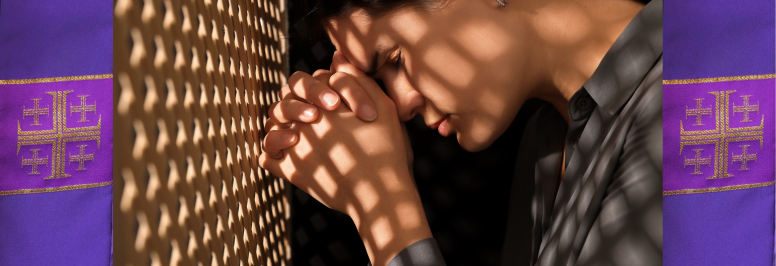By Rev. Benedict NwachukwuUdaku, Ph.D.
Acknowledging that we are sinners is the best way to open our hearts to the blessings of the Jubilee Year to find home in us. In his best-selling book “Rediscover Catholicism: A Spiritual Guide to Living with Passion and Purpose,” Matthew Kelly writes: “I am a sinner. Every day I find myself doing things that are self-destructive and that make me a lesser person. I say things that hurt others, or I hurt others by not saying things. When that happens, you can be sure the things I am thinking are giving birth to those words and actions. These are the thoughts, words, and actions that deviate from the natural order and separate me from the peace of knowing I am contributing positively to the common good of the unfolding universe. The strange thing is, deep within I don’t want to think, say, and do these things. I don’t want to be the lesser person; I want to be the-best-version-of-myself. I want to live by contributing to other people’s happiness, not their misery. In each moment of each day, I find myself caught in a struggle. I am divided. No different from you, I find myself experiencing what Paul described: ‘The good I would, I do not, and the evil that I should not do, it is what I do’ (Romans 7:19).”
Through the Sacrament of Reconciliation we are restored to communion with God and with one another. The Jubilee Year, as a time of encounter with God, makes reconciliation with our Heavenly Father imperative. Pope Francis emphasizes the importance of this sacrament, stating: “The Jubilee churches along the pilgrimage routes and in the city of Rome can serve as oases of spirituality and places of rest on the pilgrimage of faith, where we can drink from the wellsprings of hope, above all by approaching the Sacrament of Reconciliation, the essential starting-point of any true journey of conversion. In the particular churches, special care should be taken to prepare priests and the faithful to celebrate the sacrament of Confession and to make it readily available in its individual form (Spes Non Confundit, no.3).”
The Sacrament of Reconciliation meets the need for spiritual renewal, allowing us to remain in a continuous state of grace as we journey towards God, our Father. This sacrament of healing is not only a profound spiritual gift but also a decisive, essential and fundamental step on our journey of faith. Through it, we allow the Lord to erase our sins, heal our hearts, lift us up, to embrace us, and reveal His tender and compassionate countenance. As Scripture reminds us, “Be reconciled to God” ( 2 Corinthians 5:20) (Spes Non Confundit, No. 24). The Jubilee Year ultimately is a celebration of the outpouring of divine mercy, grace and forgiveness. Failing to partake in Confession during this sacred time would be a missed opportunity to receive the fullness of God’s mercy and pardon.
The Jubilee Year and Plenary Indulgence
An indulgence is a remission before God of the temporal punishment due to sins whose guilt has already been forgiven. This spiritual benefit is granted to a faithful Christian who is duly disposed and fulfils certain prescribed conditions through the action of the Church which, as the minister of redemption, dispenses and applies with authority the treasury of the satisfactions of Christ and the saints. Indulgences may be applied to the living or the dead (CCC, 1471). As part of the spiritual benefits of the Jubilee Year, the Church, through the Vicar of Christ, Pope Francis, provides indulgences to the faithful, who meet the necessary conditions to receive this grace. According to Pope Francis, an indulgence is a way of discovering the unlimited nature of God’s mercy (Spes Non Confundit, no. 23). To obtain a plenary indulgence during the Jubilee Year 2025, one must fulfil the following requirements: Visit one of the churches designated by the Bishop (see pages 10-11), receive the Sacrament of Reconciliation, receive Holy Communion, practice Corporal and Spiritual Works of Mercy, and pray for the Pope’s intentions.
Rev. Benedict NwachukwuUdaku, Ph.D. is the Director of Academic Formation at St. Junipero Serra House of Formation in Grand Terrace.


